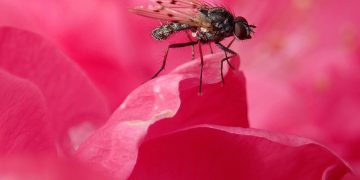Essentials of Modern Gardening
Introduction to Modern Gardening
Gardening has transcended from mere traditional practices to incorporate modern techniques and technologies, making it more accessible, efficient, and enjoyable. Whether you’re a seasoned gardener or a beginner, understanding the essentials of modern gardening can greatly enhance your gardening experience. This guide explores crucial components, tools, and approaches that define modern gardening today.
Understanding the Basics of Soil Health
The Role of Soil in Gardening
Soil isn’t just dirt—it’s a dynamic, living ecosystem essential for plant health. Modern gardening emphasizes soil health, focusing on maintaining its balance of nutrients, structure, and biology.
Soil Testing and Amendment
Regular soil testing is a staple in modern gardening. It helps gardeners understand nutrient deficiencies and pH levels, guiding them on how to amend their soils. Organic matter, such as compost, is often used to improve soil structure, increase nutrient content, and enhance microbial activity.
Climate Considerations in Gardening
Gardening in Various Climates
Modern gardening requires an understanding of how specific climates affect plant growth. From cold-hardy perennials to heat-tolerant shrubs, selecting appropriate plants for your climate zone is key.
Utilizing Microclimates
Leveraging microclimates within your garden can optimize plant health and yield. Plant placement can be strategized based on exposure to sunlight, wind, and moisture, significantly impacting their survival and growth.
Water Management Strategies
Efficient Irrigation Systems
Modern gardening promotes water conservation through efficient irrigation systems like drip irrigation or soaker hoses. These systems deliver water directly to the plant’s roots, minimizing waste and ensuring plants get the water they need without excess.
Rainwater Harvesting
Collecting rainwater is another sustainable practice in modern gardening. It reduces dependence on municipal water systems and provides plants with chemical-free water, ideal for organic gardening.
The Integration of Technology in Gardening
Smart Gardening Tools
Technological advancements have introduced several innovative tools to the gardening world. Smart gardening sensors, for example, can monitor soil moisture, sunlight, and nutrient levels, transmitting this information directly to your smartphone.
Gardening Apps
Numerous gardening apps are now available to help plan, monitor, and manage gardens more effectively. These apps can provide reminders for planting, watering, and fertilizing, making garden management easier than ever.
Choosing the Right Plants
Selecting Plants for Sustainability
In modern gardening, selecting plants goes beyond aesthetic considerations. It’s about choosing varieties that are sustainable for your particular environment, require less water, and are more resistant to local pests and diseases.
Native Plants and Biodiversity
Incorporating native plants into your garden supports local wildlife and promotes biodiversity. Native species are adapted to the local climate and soil, requiring less maintenance and providing habitats for birds, bees, and butterflies.
Sustainable Gardening Practices
Organic Gardening
Reducing chemical use by opting for organic gardening practices is a cornerstone of modern gardening. Utilizing natural pest control methods and organic fertilizers not only supports broader environmental health but also produces healthier plants.
Composting
Composting kitchen scraps and garden waste can enrich your garden soil, reducing waste and the need for chemical fertilizers. It’s an essential practice in creating a sustainable garden ecosystem.
Addressing Common Questions in Modern Gardening
How do I start a garden in a small space?
Urban gardening techniques, such as vertical gardening, container gardening, and raised beds, can help you make the most of limited space while still growing a variety of plants.
What are some easy plants to start with?
For beginners, easy-care plants like succulents, marigolds, sunflowers, and herbs such as basil and mint are recommended. These plants require minimal maintenance and are forgiving to novice errors.
How can I keep pests away naturally?
Natural pest deterrents include companion planting, natural predators such as ladybugs, and homemade sprays made from garlic or neem oil. These methods are effective and avoid the negative impacts of synthetic chemicals.
Conclusion: Embracing the Future of Gardening
Modern gardening is as much about returning to natural roots as it is about embracing innovation. By integrating the latest technologies and sustainable practices, gardeners can enjoy more fruitful yields, vibrant gardens, and a healthier ecosystem. Start applying these essentials today to enhance your modern gardening journey and contribute positively to the environmental sustainability of your community.
































